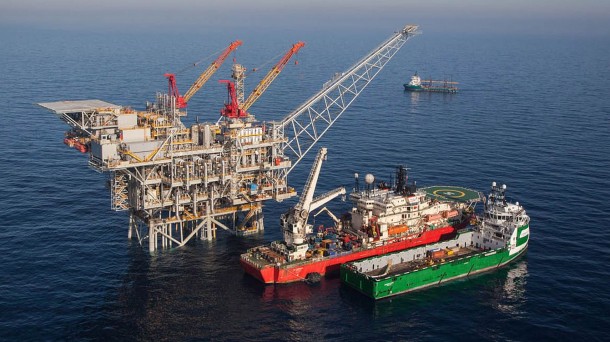The UOG team would like to wish everyone a very happy and healthy start to the new year!
We are delighted to announce that UOG 2015, Israel’s 2nd Annual International Oil & Gas Conference and Exhibition, will be taking place 17-19th November 2015 in Tel Aviv. You can register your interest by emailing cordelia.evans@universaloilgas.com
More details and official UOG 2015 invitations to be released soon.
Latest Updates in Israel’s Oil & Gas Industry
Israel’s Antitrust announcements: Pale of Doom or Opportunity?
Israel’s Antitrust Authority has announced that it is deciding whether to cease an agreement that lets Noble Energy and Israel’s Delek Group develop Leviathan and Tamar fields, the country’s two largest offshore gas fields. The move would cancel an earlier negotiation where the two firms could avoid being depicted as a conglomerate and retaining ownership in return for selling smaller fields, Karish and Tanin. This is being considered in order to create more competition in the Israeli oil and gas market.
The Tamar field is thought to contain 10 TCF of natural gas (7.9 TCF proven reserves) and generates approximately 50% of Israel’s electricity, and the Leviathan is estimated to have at least 19TCF of gas. When combined, the fields contain enough gas to meet Israel’s domestic needs for at least 50 years, in addition to a surplus which can be exported. The choice to reopen a natural gas deal due to the monopoly issue threatens Israel’s gas export potential and its capability to attract foreign investment. In addition it could potentially complicating relations with surrounding nations, including the Palestinian Authority, Jordan and Egypt.
David Gilo, the head of Israel’s Antitrust Authority, will make a final decision within the next couple of weeks. The project’s first phase, which is creating seabed production systems and a pipeline going to shore, is estimated to cost US$6.5 bn. Both Noble and Delek have been working on raising this capital, and this amount may not be raised if Noble and Delek have to sell their ownership, which in turn could hinder the fields’ development. Furthermore, if Israel’s gas fields are not developed due to lack of funding, this could threaten Israel’s energy security, not to mention national security.
On the contrary, however, selling ownership reducing the ‘monopoly’ of Israel’s gas fields could have the benefit of curtailing social inequality in the nation. If Noble and Delek are judged to be functioning as a conglomerate and they are forced to sell, the new holder would be accountable for raising the US$6.5bn for developing the fields and acquiring deals with potential customers.
Tell us what you think about this latest decision.
It is definitely something to monitor over the coming weeks.
Tweet us @UniversalOilGas or leave your comments below.


